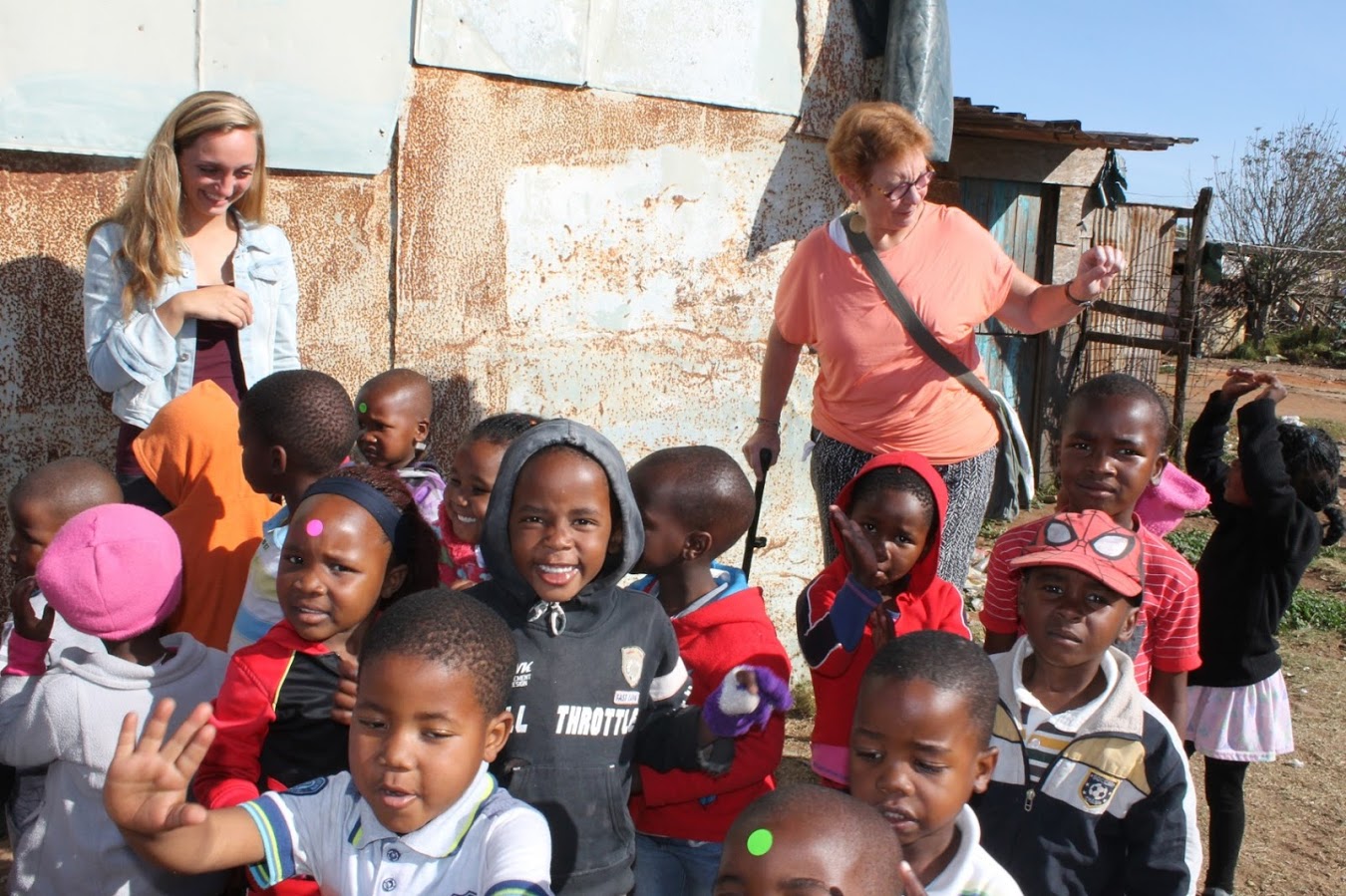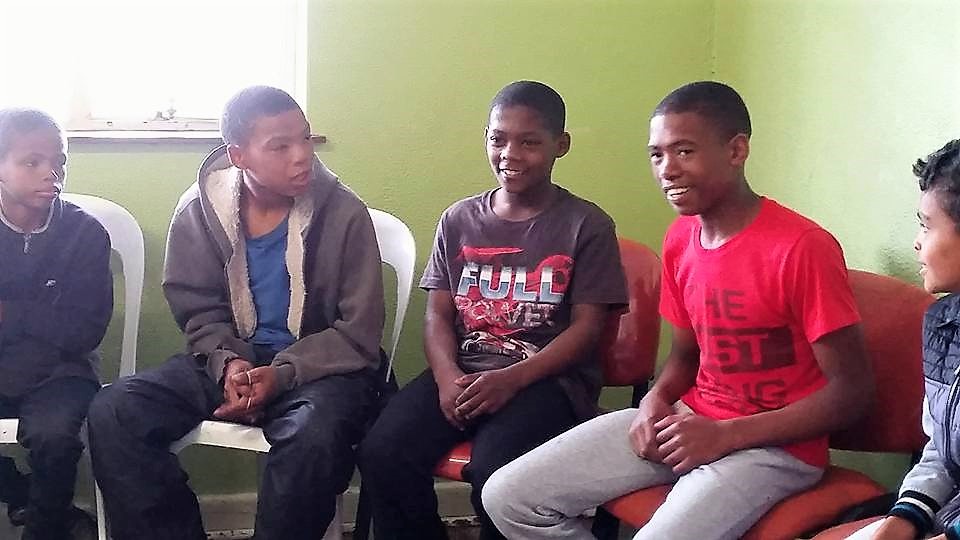
Every year thousands of young people hit our shores in search of adventure, or to fulfil a lifelong dream of “travelling to Africa”. The term “voluntourism” has been bandied about a lot lately and young people have been vilified for it. We agree that this is something to be concerned about, and that the exoticism associated with volunteering in Africa is a worrying modern-day reincarnation of the colonial exploration of the continent. However it is dangerous to generalise in any direction, and we at HVP have yet to meet a young person who is not genuinely passionate about using their skills as student teachers, social workers and nurses to make a positive difference in the lives of those often forgotten by ourselves as South Africans. We have great respect for them and the choice they have made over a (probably easier) path in their home country.
For many young people from abroad, this will be the first time in a developing country. Whether considered “wealthy” or not, most would be leaving their homes of relative comfort and security – countries where having clean running water, electricity and a daily meal are the norm. South Africa’s Human Development Index1 (the most common measure of inequality) was measured at 0,66 in 2015, ranking 119th out of 188 countries. Most of the volunteers we see at HVP are from the Netherlands, Belgium and Germany where the HDI is on average 0,9 – i.e. highly developed countries (http://hdr.undp.org/en/composite/trends).* Tragically many of them never see the magnitude of the differences between their home countries and ours.
The most curious thing we have seen is that there is an effort by some hosts to show these young people as little as possible of the harsh realities of deprivation that impact the daily lives of millions of South Africans. Of course there is the natural and understandable temptation to put our best foot forward as South Africans. After all, our hospitality and warmth is what we are known for the world over. It makes sense in many ways to show our foreign guests “how far we’ve come”; that we are not the backward, undeveloped, non-industrialised caricature as often portrayed. Let’s be honest – who wants to expose guests to what makes us shift uncomfortably when the traffic light goes red and the little boy (eyes simultaneously hopeless yet desperately pleading) sticks out his two fingers for “two rand to buy bread”. For some time now though, we at HVP have realised that if we show them this other side – the one that we may not be so proud of, something phenomenal happens.
The story of Jane
Recently, we hosted Jane** a young student teacher who had spent a few months at one of the most prestigious schools in South Africa. Upon arrival, we offered to show her a school in one of the most poverty-stricken areas in which we work. This school, despite its exposure to decades of gang-related crime, violence and infrastructure decline (all deeply rooted in the deliberate socio-economic under-development of the apartheid system) is a bastion of resilience in the community. Hundreds, if not thousands, of young people have become successful adults due to the foundations put in place by the dedication and tenacity of the teachers and school management over the years. However, the poverty and inequality here remain.
Jane’s experience was life-changing. The principal and teachers announced her as their “very special guest”, and encouraged the entire school to treat her as such. They hugged, loved and adored her. They showed her respect and the little ones greeted her shyly and in awe. Most had not eaten breakfast, and would rely on the government-subsidised lunch (possibly their only meal of the day). Theirs is an unrelenting hope in this space – where learning is a literal life-line – that their exit from generations of poverty becomes possible. Jane personally experienced both the children’s and teachers’ resilience in the midst of their day by day battle with what many of us take for granted (a warm bed, safety behind our alarmed or gated homes and the guarantee of a meal). The reality is heart-wrenching to young people like Jane who have likely never been this close to poverty and deprivation. It is perhaps difficult for them to imagine how people – especially children – find the strength to survive through these circumstances.
However, there is an authenticity that happens in the hearts of young people like Jane in the moment of realisation that there is meaning and value in their coming to this beautiful, harsh and resilient country, and it is not insignificant. This is not a moment to be relegated to a picture or status update. The status quo becomes untenable, and change is inevitable. Jane left that school and South Africa with a flood of tears in her eyes and a fire in her heart. Who knows the influence she will have back home that will have a multiplying impact on the future of that school?
By all means – let’s show them the beauty of the strides we have made, of all the reasons why we are able to compete on the global stage in education, science, technology, entertainment and leisure. But let’s also be genuine, and trust them (and ourselves) enough to know that there is a greater impact when we all, as humanity, work together to solve the great and vexing problems of this world – of which inequality and poverty are amongst the worst. Young people (both here and abroad) have shown over the course of history that they are, often, the vanguards of change – let’s give them the opportunity to be that.
By Candice Morkel
* The higher the HDI, the more “developed” a country is.
** Name changed to protect identity

